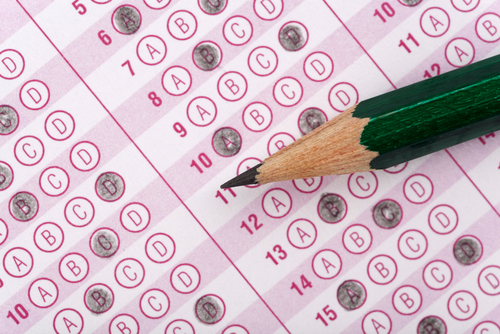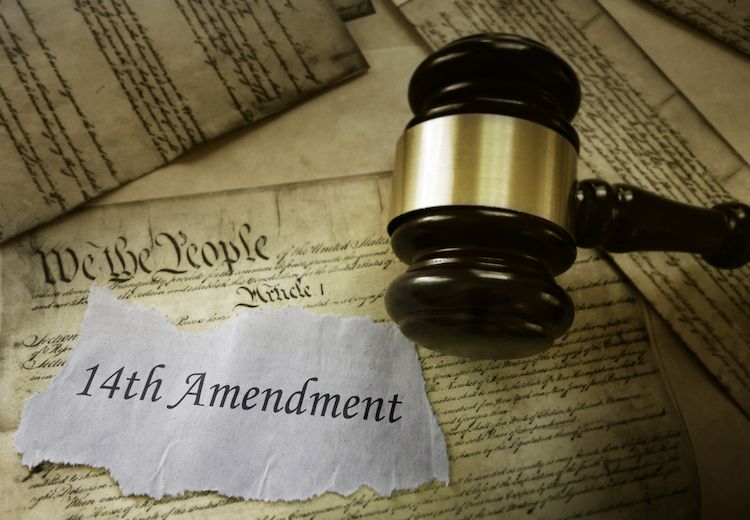A real defense of fake trials and a love letter to my family
I knew that arming teenagers with the ability to understand the difference between hearsay exemptions and exceptions would boomerang on me as a parent already locked in daily arguments about truth-telling. And yet, that’s what my husband and I did once our children were old enough to participate in high school mock trial competitions.
Our past lives as prosecutors and civil defense attorneys gave us some measure of cool with our children, who were already dispensing advice to middle school classmates about the constitutionality of school disciplinary measures.
But my transition to corporate work and my husband’s later focus on municipal law eventually made our careers too abstract for them. Mock trial gave the four of us a common language, which my husband and I were desperate to rediscover with two teenagers who were busy figuring out how to carve out a distinct space for themselves outside their parents’ world. I originally thought we’d find that connection through music, but we are never going to convince our children of the objective superiority of ‘90s hip-hop and R&B—and attempts to do so only made us feel old. (We did gain some credibility with them by pointing out the direct connections between rap lyrics and the quest for racial justice.)
My husband and I both “speak” courtroom, but adding angsty, awkward and unintentionally hilarious teenagers to our world enhanced our appreciation for the industry and our children. Our son was clinical in his approach—he wanted to understand the “rules” of the “game” and then happily went off to play it. Our daughter was initially much more wary about getting involved in “the family business,” even though she is instinctively prone to passionate argument, if life experience was any guide. Given her enthusiasm for writing and her gift for satire, she poked fun at and reveled in the geekiness and the hyperspecificity of the mock trial universe, to the point where she is now writing a screenplay about the experience.
So, while our children’s interest in participating in this sport (my word) was not a surprise, I was somewhat self-aware that this would awaken the stage mother in me—they had to win, given their parents’ backgrounds, right?
Having competed in, coached and judged mock trial and moot court competitions throughout high school and law school, I appointed myself lead counsel for the children’s legal education. We explored the hypothetical contours of the rules of civil and criminal procedure and walked through scenarios that compelled the introduction of character evidence. We distinguished a defendant’s traits that are “pertinent” to an alleged crime from other crimes, wrongs and acts that are admissible to prove motive, opportunity and other limited issues.
The sessions backfired immediately. Our children quickly pointed out that leading questions on cross-examinations echoed the way we questioned them, and they challenged that we were improperly using their “prior bad acts” against them. I received my comeuppance as a working mother when our son told me he wasn’t available for a call because he was “in trial.”
During the pandemic, we found ourselves dressed similarly in suit jackets, dress shirts and pajama bottoms as we argued about who would get the “good” room for oral argument. (Our children were not persuaded that real cases and actual adversarial proceedings should be given priority.) Opening statements echoed throughout the house.
But life lessons quickly surfaced too. Practicing lawyers and judges presided over rounds, and our children learned that a “sustained” objection may mean that while the objection was technically correct, the judge may still disagree on the objecting party’s interpretation of the rule or argument. Being right on the law did not equate with winning the case; there are no appeals—only pivots in the theory of one’s case.
It was undeniably gratifying that the children would seek our counsel on at least some things. Because of her newfound interest, our daughter even decided to “clerk” for me when I judged one round in a law school classroom outfitted as a courtroom. She was pleased to sit next to me on the bench to track evidentiary objections and exhibit admissions. I leaned into the opportunity to require her to call me “Your Honor,” even if it was only for several hours.
I learned to cheer them on as an actual parent and not rise from my seat in the audience to address an objection they missed. I was nervous before each fictional murder or negligence case, and I celebrated and mourned outcomes as if actual criminal convictions and liability findings were at stake.
Losses stayed with us for weeks, and we talked about alternative ways to approach the trials well past competitions. Our children shocked and amused us by seeking our unsolicited advice and, in the same breath, schooling us on trial strategy. It was admittedly eye-opening to hear about how they leverage emojis and social media posts as evidence.
I expected that our children’s appreciation for moot court to lag behind mock trial, which often had the guilty-pleasure appeal of a scripted reality television show. In contrast, moot court simulates formal appellate argument and can feel like an often-interrupted soliloquy in a play. Lawyers present legal arguments to a panel of judges with no witness testimony.
There isn’t another high school extracurricular activity that tests a teen’s simultaneous ability to speak extemporaneously, to weather frequent interruptions from judges, to gauge from verbal queues and body language when a line of inquiry had ended, and to “pick up” where they “left off” in their argument.
Teens unsurprisingly feel strongly about the lyrical way the Supreme Court describes which First and Fourth Amendment rights teenagers shed when they arrive at the schoolhouse gate. The exercise of having teenagers defend their rights to adults—while pretending to be experienced appellate lawyers—made for even more passionate and sometimes comical arguments as they tried to distance themselves from the teens and children they are.
Moot court personalized their understanding of the Constitution better than any civics lesson, as they argued about the intersection and divergence of constitutionality, fairness and justice.
These experiences brought me and my husband back to the early years of our practice—we fell in love with the courtroom and with each other at around the same time, and sharing our affinity for our work with our children felt like the logical next chapter of our own narrative.
Perhaps we should not have been surprised that the best way for our children to get better acquainted with who we are aside from being their parents was to enable them to understand our own approach to litigation. Some families play tennis together; we apparently get revved up by arguing about who has met their burden of proof.
Although we have enough jokes about the world having too many lawyers, one could argue that the world can never have enough good advocates. As I watch our children argue a pretrial motion or deliver a closing argument, I am filled with optimism for the future of the profession.
Anna Newsom is executive vice president and chief legal officer for Providence St. Joseph Health, a Catholic, nonprofit health system serving the Western United States. She previously held several leadership roles at the Travelers Companies and was a partner at the law firm Mendes & Mount. She started her legal career as a prosecutor in the Bronx district attorney’s office in New York.
ABAJournal.com is accepting queries for original, thoughtful, nonpromotional articles and commentary by unpaid contributors to run in the Your Voice section. Details and submission guidelines are posted at “Your Submissions, Your Voice.”
This column reflects the opinions of the author and not necessarily the views of the ABA Journal—or the American Bar Association.






